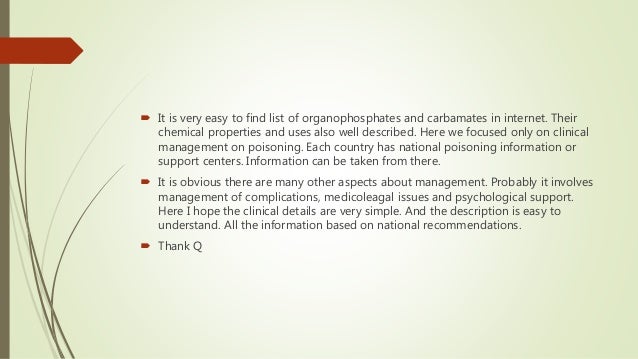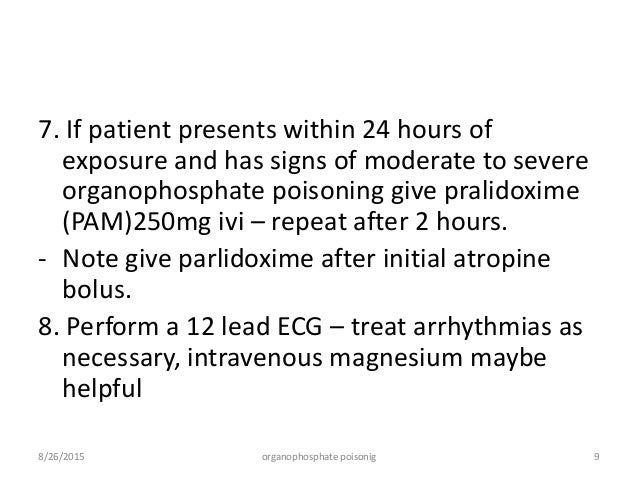

If Tatsuji Namba was to visit the medical wards of South Asia today, some 55 years after his pioneering work in Japan and the United States on occupational organophosphorus (OP) insecticide poisoning 1- 3, he would feel very much at home. It is possible that the only effective way to reduce deaths from OP insecticide poisoning will be a steady reduction in their agricultural use worldwide. In addition, the toxicity of the varied solvents and surfactants formulated with the OP active ingredients complicates both treatment and studies. However, the large number of chemically diverse OP insecticides, the varied poisoning they produce and their varied response to treatment might ultimately make it difficult to determine definitively whether these antidotes are truly effective.

Hopefully, one or more of these affordable and already licensed antidotes will find their place in routine clinical care. Novel antidotes such as nicotinic receptor antagonists, beta-adrenergic agonists and lipid emulsions are being studied in large animal models and in pilot clinical trials. Supplemental antidotes, such as magnesium, clonidine and sodium bicarbonate, have all been proposed and studied in small trials without production of definitive answers. However, we are still unsure about which patients are most likely to benefit from the use of oximes. Clinical research in South Asia has shown how improved regimens of atropine can prevent deaths. We are still using the same two antidotes – atropine and oximes – that first came into clinical use in the late 1950s. Despite being a major clinical and public health problem across the developing world, responsible for at least 5 million deaths over the last three decades, the clinical care of patients with organophosphorus (OP) insecticide poisoning has little improved over the last six decades.


 0 kommentar(er)
0 kommentar(er)
